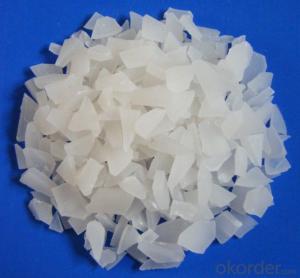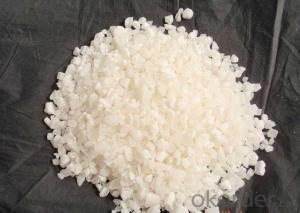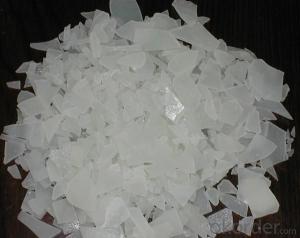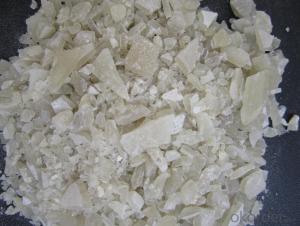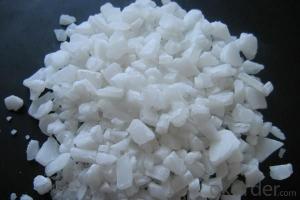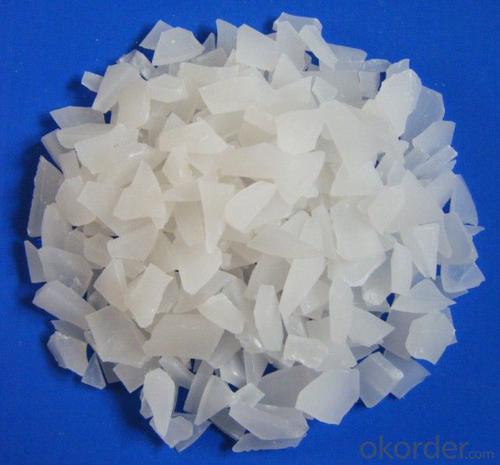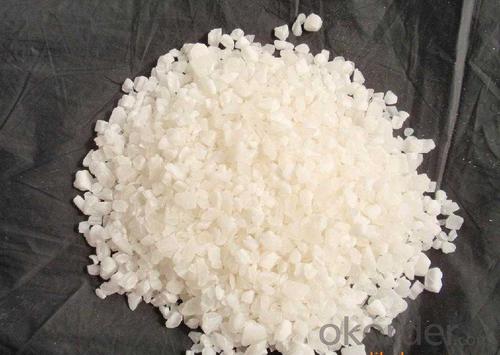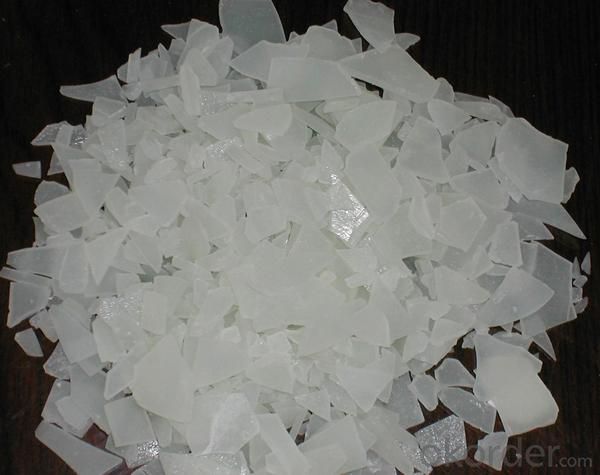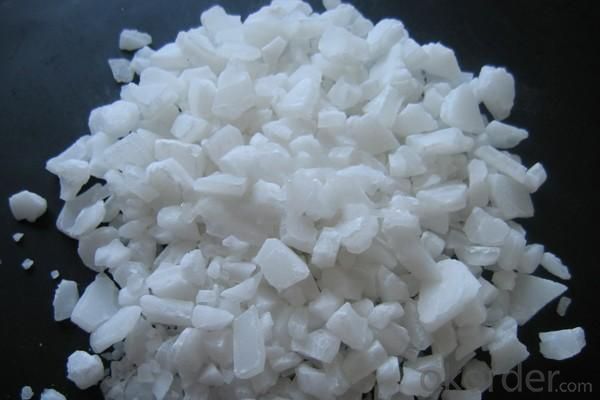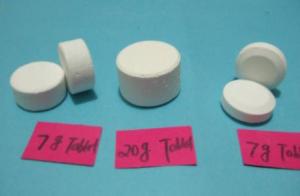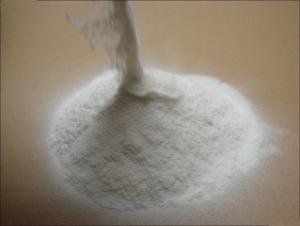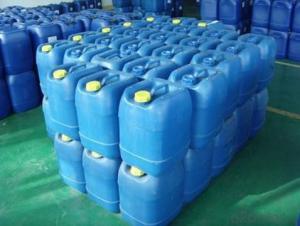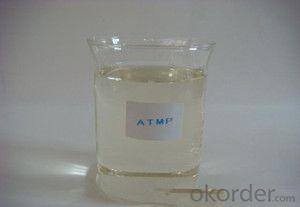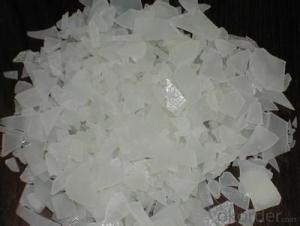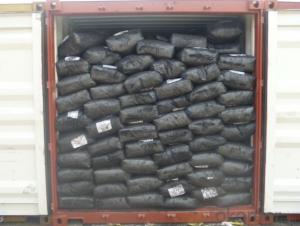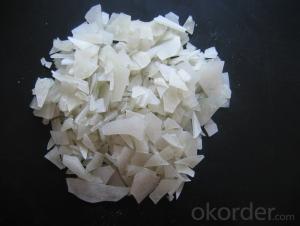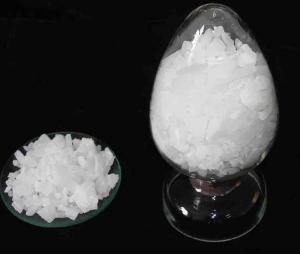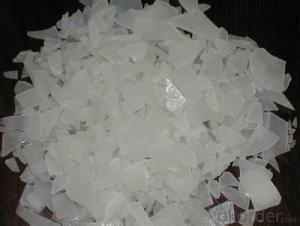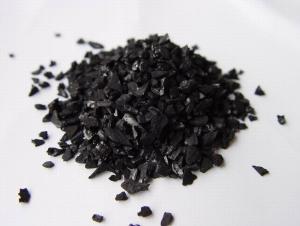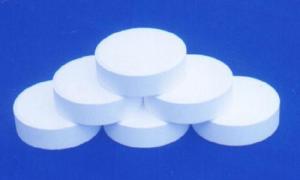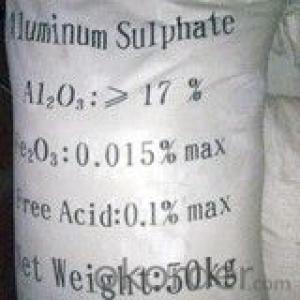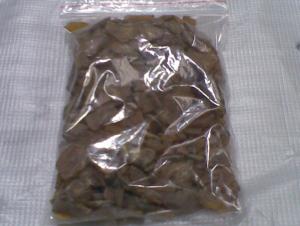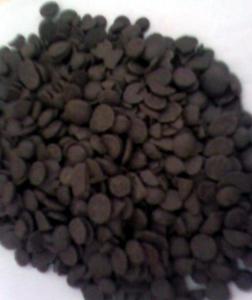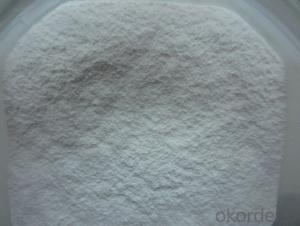Aluminum Sulfate No Fe First Grade With Best Price
- Loading Port:
- Qingdao
- Payment Terms:
- TT OR LC
- Min Order Qty:
- 25 m.t.
- Supply Capability:
- 12000 m.t./month
OKorder Service Pledge
OKorder Financial Service
You Might Also Like
1. Chemical and Physical Properties:
Product name: Aluminium Sulphate or Aluminum Sulfate
Shape: Flakes or Granular or Powder.
EINECS NO.:233-135-0
CAS No.: 10043-01-3
HS.Code: 28332200
Molecular Formula: Al2(SO4)3
Appearance:It is white or grey flake,particle or massive crystallization.
Apt to cake after moisture absorption when laid in air for a long time.A little green because of Fe2+ ,yellow when Fe2+ is oxided to Fe3+.Soluble in water easily,and water solution is acid.
2. Specification:
Standard: HG/T 2225-2001 and HG/T 2227-2004
Items | Specifications | |||
I Type:Low Ferrous/Low Iron | II Type:Non-Ferrous/Iron-free | |||
First Class | Qualified | First Class | Qualified | |
Al2O3 % ≥ | 15.8 | 15.6 | 17 | 16 |
Ferrous(Fe )% ≤ | 0.5 | 0.7 | 0.005 | 0.01 |
Water Insolube % ≤ | 0.1 | 0.15 | 0.1 | 0.15 |
PH (1% aqueous solution) ≥ | 3.0 | 3.0 | 3.0 | 3.0 |
Arsenic(As) %≤ | 0.0005 | 0.0005 | ||
Heavy metal (Pb) %≤ | 0.002 | 0.002 | ||
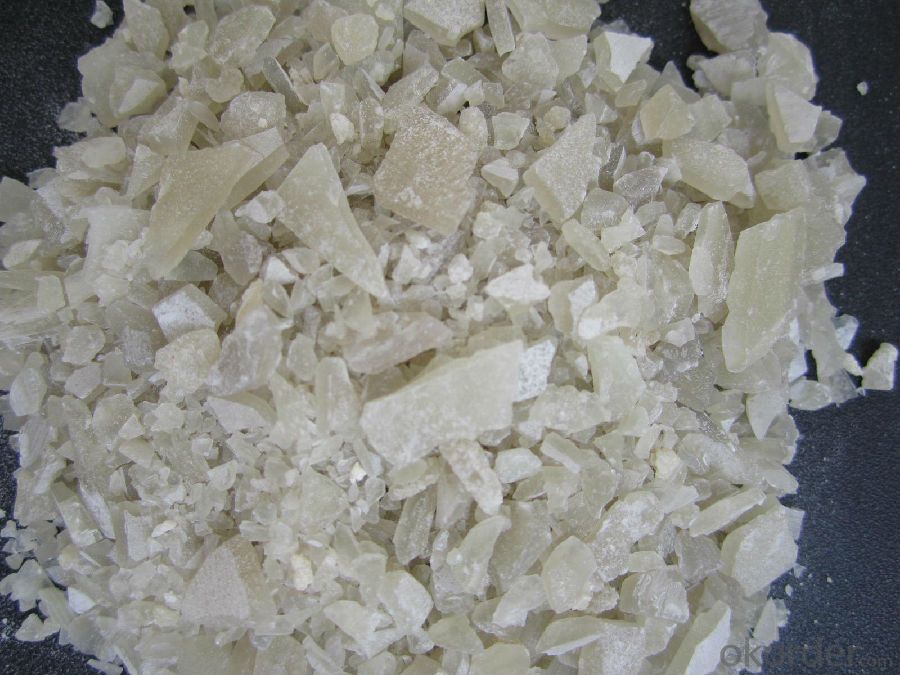
3.Applications:
Water effluent treatment system
It's used for purification of drinking water and wastewater treatment by settling of impurities by
means of precipitation and flocculation.
Paper Industry
It helps in sizing of paper at neutral and alkaline pH, thus improving paper quality (reducing spots
and holes and improving sheet formation and strength) and sizing efficiency.
Textile Industry
It is used for color fixing in Naphthol based dyes for cotton fabric.
Other Uses
Leather tanning, lubricating compositions, fire retardants; decolorizing agent in petroleum, deodorizer; food additive; firming agent; dyeing mordant; foaming agent in firefighting foams; fireproofing cloth; catalyst; pH control; waterproofing concrete; aluminum compounds, zeolites etc.
4. Package:
Packaging Detail: PP/PE 50kg/bag;25kg/bag;Jumbo bag or according to customers' requirements.
20-25MT will be loaded in per 20'FCL container.
5. Attention and Storage:
The product is liable to absorb moisture and clot due to long-term exposure, so shady, cool and ventilated environment is needed.
- Q: what is the role of a catalyst in a chemical reaction?
- It increases the rate of reaction by lowering the requirement of energy needed to carry out the chemical reaction. Hope that helped.
- Q: Could God be Discribed as a Catalyst?
- On reflection, I would say no, God can't be described as a catalyst. That would be like calling a farmer who fertilizes his crop a catalyst; whereas it's the fertilizer that is the catalyst. Or it would be like a scientist in a lab adding an enzyme to something to speed a process; and then having us label the scientist as the catalyst. So in the same way, God doesn't seem to be the actual catalyst; maybe the spirit is the catalyst....
- Q: and what type of macromolecule are they made of? thanks!
- Enzymes okorder /...
- Q: Is palladium predominantly a catalyst in chemistry?
- Palladium in the chemical mainly to do the catalyst; palladium and ruthenium, iridium, silver, gold, copper and other alloy, can improve the palladium resistivity, hardness and strength, used in the manufacture of precision resistors, jewelry and so on.
- Q: what is the difference between enzyme and catalyst?
- Enzymes and catalysts both affect the rate of a reaction. The difference between catalysts and enzymes is that while catalysts are inorganic compounds, enzymes are largely organic in nature and are bio-catalysts. Even though all known enzymes are catalysts, all catalysts are not enzymes. Moreover, catalysts and enzymes are not consumed in the reactions they catalyze. Catalysts are low molecular weight componds, enzymes are high molecular globular proteins. Catalysts are inorganic, enzymes are organic. Catalyst reaction rates are slower (usually) than enzyme reaction rates. Catalysts are not generally specific - enzymes are VERY specific. Catalysts increase or decrease the rate of a chemical reaction, enzymes are proteins that incrase the rate of chemical reactions & convert the substrate into product. There are 2 types of catalysts - (positive & negative), and the 2 types of enzymes are activation enzymes and inhibitory enzymes. Catalysts are simple inorganic molecules, while enzymes are complex proteins.
- Q: Thorough explanation pls.
- Catalyst are the substances which increase the rate of reaction. They do not get consumed in the reaction but they participate in intermediate reactions. The catalyst action can be explained as- Providing alternate energy path- Let us suppose that an endothermic reaction need 15 joules of threshold energy to occur. The catalyst will provide them path which needs less energy. Providing Surface- Many reaction may occur slowly because less contact between the molecules/atoms/ions or due to unavailability of proper structure, in this case the catalyst provide surface for carrying the reactions. There are several other actions which mayn't be necessary for you to understand the basic function of catalyst.
- Q: In biology, the enzyme seems to be a tool for opening a reaction, such as the decomposition of cellulose, such as linked RNA and protein, no enzyme can not. But in chemistry, the catalyst is only a regulatory role, change the reaction rate only. The teacher said that the enzyme is the catalyst. Is there any other effect of the enzyme? (Ignorant high three dogs, you do not spray the big god)
- But let's not say that there is no enzyme or catalyst, the reaction can not be carried out. In the process of random collision of a molecule, the occasional jump of 3 meters is also possible, but the probability is low. From the macro point of view, is the reaction rate is low. So what rate, catalyst, or what xxx let high school teacher how to say, chemical catalysis and enzyme catalysis of the fundamental principles are the same, so you go to college to understand.
- Q: Why would the Eact decrease if a catalyst is added?
- A catalyst by its very nature increases the rate of reaction by binding to a reactant, hence changing its shape and reactivity with other reactants. However, the catalyst is neither consumed nor will it change the chemical shape of the products.
- Q: The catalyst can change the chemical reaction process, why is it wrong?
- No, only for the length of time
- Q: What chemical reactions can water do the catalyst?
- So far heard, but can and Na and other metal reaction
Send your message to us
Aluminum Sulfate No Fe First Grade With Best Price
- Loading Port:
- Qingdao
- Payment Terms:
- TT OR LC
- Min Order Qty:
- 25 m.t.
- Supply Capability:
- 12000 m.t./month
OKorder Service Pledge
OKorder Financial Service
Similar products
Hot products
Hot Searches
Related keywords
